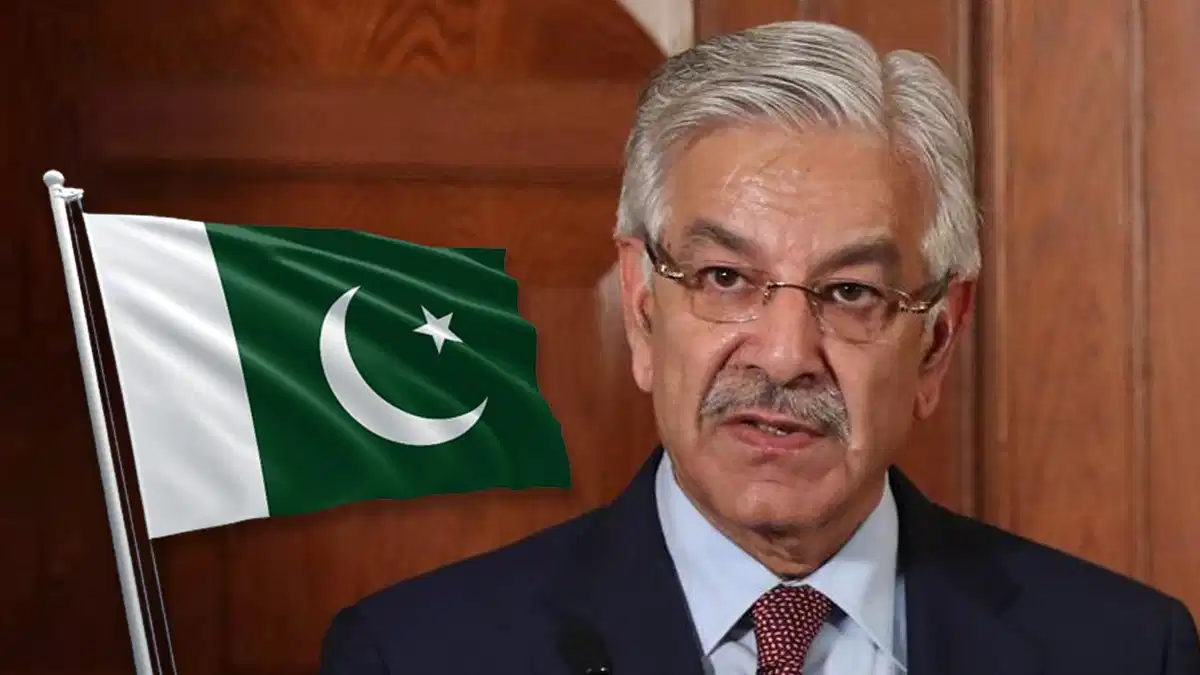Islamabad, July 3, 2025 — In a stunning geopolitical development, Pakistan’s Defence Minister Khawaja Asif has hinted that Islamabad may consider normalizing ties with Israel, if doing so aligns with Pakistan’s national interest. The remarks come amid growing discourse around the expansion of the Abraham Accords, a U.S.-brokered peace framework that saw several Arab nations recognize Israel since 2020.
Speaking in an interview with Samaa TV, Asif said,
“If such a proposal comes our way, we will evaluate it based on what serves Pakistan’s interests best. At present, there is no such proposal on the table.”
⚖️ A Major Diplomatic Shift?
Asif’s statement is particularly significant because just a week ago, he was publicly advocating for Muslim world unity against Israel, especially in light of the recent Iran-Israel conflict and ongoing Gaza hostilities. His current openness to considering the Abraham Accords has sparked shock and speculation across political circles, both at home and abroad.
This marks a potential ideological turnaround in Pakistan’s long-standing policy of non-recognition of Israel — a stance historically rooted in solidarity with the Palestinian cause.
🇵🇰 Domestic Backlash Looms
Khawaja Asif’s conditional openness to recognizing Israel could trigger fierce backlash from Pakistan’s conservative and religious factions, who have traditionally opposed any diplomatic engagement with Tel Aviv. His shift in tone — from calling Israel a “growing threat” to now considering relations for strategic benefit — may also strain Islamabad’s ties with Iran, a staunch opponent of Israel and a close regional ally of Pakistan.
Political analysts suggest that Asif’s comments may have opened Pandora’s box within Pakistan’s power structure, as military, religious, and public opinion begin to react.
🌍 Abraham Accords II: Is Pakistan Next?
With Donald Trump back in office, his administration is reportedly reviving the Abraham Accords under a second phase — informally dubbed “Abraham Accords II”. The original accords, initiated in 2020, saw UAE, Bahrain, Morocco, and Sudan establish diplomatic ties with Israel under U.S. mediation.
Now, discussions are gaining momentum around Saudi Arabia and Pakistan potentially joining the pact — a development that would dramatically alter Israel’s standing in the Muslim world.
🔥 Tensions with India Escalate Again
In the same interview, Khawaja Asif also reignited India-Pakistan tensions, claiming that “India could attack again at any moment.”
“We are ready to talk, but India is escalating tensions. We seek peace and a solution to the Kashmir issue,” he said, while reiterating Pakistan’s commitment to national defense.
💧 Water Wars: Sindhu Treaty Under Fire
Asif also addressed the ongoing Sindhu Water Treaty dispute, warning India against altering water flows.
“If India tries to block our water, we will consider it an act of war. The Indus Waters are our rightful share under the treaty, and we will defend it with full strength,” he declared.
🧭 What This Means for the Region
If Pakistan seriously considers entering the Abraham Accords, it would mark a historic pivot in South Asian diplomacy. While potentially opening doors for trade and technology cooperation, such a move could also inflame internal divisions, draw criticism from allies like Iran, and further polarize domestic politics.
Simultaneously, renewed tension with India on both security and water-sharing fronts suggests that South Asia remains fragile, and any misstep could ignite a broader crisis.
Bottom Line:
Khawaja Asif’s statements may be speculative for now, but they have triggered a storm of questions about Pakistan’s future foreign policy trajectory. In a region fraught with rivalries, ideologies, and shifting alliances, the line between pragmatism and provocation is increasingly thin.
